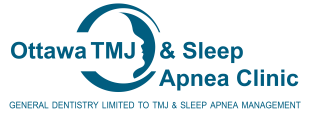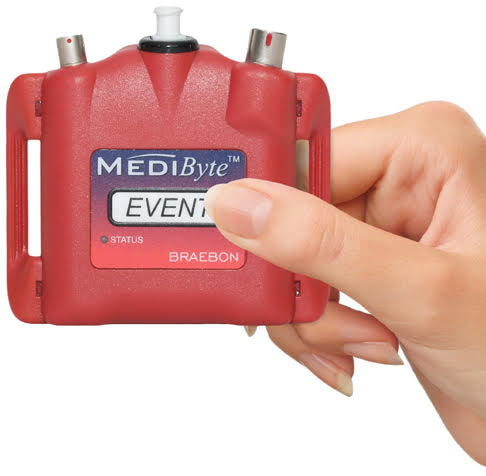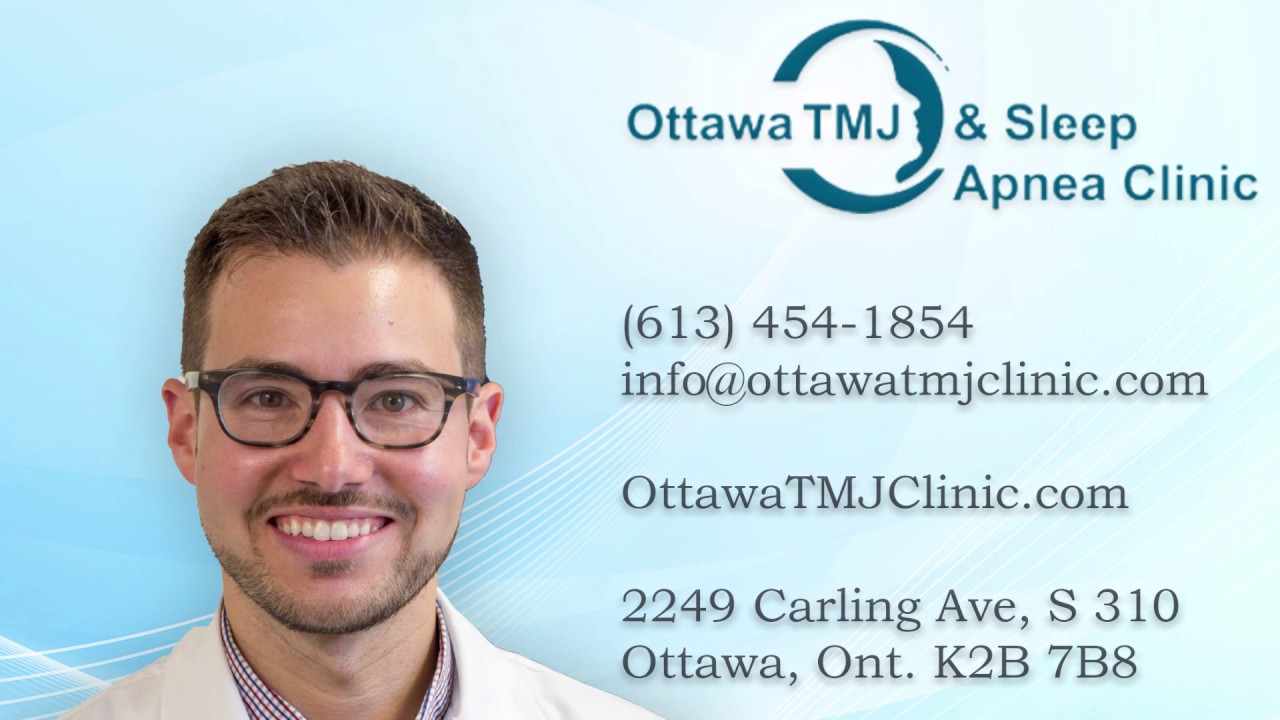Sleep apnea and TMJ treatments in Ottawa, ON
Sleep apnea is a common but often undiagnosed condition that can significantly impact your overall health and quality of life. At-home sleep tests make diagnosing sleep apnea easier and more convenient than ever. These tests provide accurate results while allowing you to sleep in the comfort of your own bed.
Understanding Sleep Apnea
What is Sleep Apnea?
Sleep apnea is a sleep disorder characterized by repeated interruptions in breathing during sleep. There are three main types of sleep apnea:
Obstructive Sleep Apnea (OSA):
The most common form, caused by a blockage of the airway, usually when the soft tissue in the back of the throat collapses during sleep.
Central Sleep Apnea (CSA):
Occurs when the brain fails to signal the muscles to breathe, due to instability in the respiratory control center.
Complex/Mixed Sleep Apnea:
A combination of both obstructive and central sleep apnea.
Common Symptoms of Sleep Apnea
Sleep apnea can manifest through various symptoms, including:
– Loud snoring
– Episodes of stopped breathing during sleep
– Gasping or choking sounds during sleep
– Daytime fatigue and drowsiness
– Morning headaches
– Difficulty concentrating
– Irritability or mood swings
Health Risks of Sleep Apnea if Left Untreated
If sleep apnea is left untreated, it can lead to severe health complications such as:
– High blood pressure
– Heart disease
– Stroke
– Diabetes
– Depression
– Increased risk of accidents due to daytime fatigue
Benefits of At-Home Sleep Tests
Comfort and Convenience
At-home sleep tests allow you to undergo sleep apnea testing in your own bed, which can reduce anxiety and discomfort associated with sleeping in an unfamiliar environment like a sleep lab. This comfort can lead to more natural sleep patterns, providing more accurate results.
Accuracy
Modern home sleep test devices are designed to be highly reliable and can provide results that are comparable to those obtained from in-lab sleep studies. These devices monitor essential parameters such as breathing, oxygen levels, and heart rate, ensuring a comprehensive analysis.
Cost-Effective
Home sleep tests are typically more affordable than in-lab studies, making them an accessible option for many patients. This cost-effectiveness does not compromise the quality of the diagnosis, allowing for effective detection and management of sleep apnea.
How Does the At-Home Sleep Test Work?
Step-by-Step Guide
Initial Consultation:
Your journey begins with an initial consultation with a healthcare professional, who will discuss your symptoms and medical history to determine if a sleep test is needed.
Receiving the Home Sleep Test Device:
If a sleep test is recommended, you will be provided with a home sleep test device, which is easy to use and comes with detailed instructions.
Setting Up the Device:
The device comes with straightforward instructions on how to set it up. It typically involves attaching sensors to your finger, chest, and possibly under your nose to monitor various parameters while you sleep.
Monitoring Parameters:
The device records vital data, including breathing patterns, oxygen levels, heart rate, and body movements. These metrics are crucial for diagnosing sleep apnea accurately.
Duration of the Test:
The test is usually conducted over one night. You will wear the device while you sleep, and it will collect all necessary data during this period.
Evaluating the Results
Post-Test Process
Returning the Device:
After completing the test, you will return the device to the clinic for analysis.
Data Analysis:
Sleep specialists will analyze the data collected by the device to identify any irregularities in your sleep patterns.
Follow-Up Appointment:
A follow-up appointment will be scheduled to discuss the results. During this session, your sleep specialist will explain the findings and answer any questions you may have.
Monitoring Parameters:
The device records vital data, including breathing patterns, oxygen levels, heart rate, and body movements. These metrics are crucial for diagnosing sleep apnea accurately.
Diagnosis and Treatment Planning:
If sleep apnea is diagnosed, the healthcare professional will develop a personalized treatment plan tailored to your specific needs.
Why Choose At-Home Sleep Tests?
Expertise and Experience
Sleep specialists are experienced in diagnosing and treating sleep apnea. They utilize their expertise to ensure accurate diagnoses and effective treatment plans for patients.
Advanced Technology
State-of-the-art technology, including home sleep test devices, is used to ensure accurate and reliable diagnoses. These advanced tools reflect a commitment to delivering the best possible outcomes for patients.
Personalized Care
Healthcare professionals understand that each patient is unique. They offer tailored treatment plans that address individual needs, ensuring the most effective care possible. From initial consultation to follow-up care, the healthcare team is there to support patients every step of the way.
Offers
Comfort, Assurance, Freedom
Do you find yourself waking up tired, or maybe with a sore, dry throat? Obstructive sleep apnea (OSA) could be the culprit. Over five million Canadians are currently living with a sleep apnea diagnosis, but many more may be suffering.
In fact, a survey conducted by the Public Health Agency of Canada found that 26 percent of Canadian adults reported symptoms and risk factors associated with a high risk of OSA. However, only 3% of Canadians aged 18 or older were formally diagnosed.
Without a proper diagnosis, untreated sleep apnea can result in serious health complications, such as high blood pressure, stroke, heart failure, and more. To get a better understanding of your condition, it’s important to undergo a polysomnography, also known as a sleep test.
If you believe that you or a loved one is suffering from OSA, contact Dr. Haissam Dahan at the Ottawa TMJ & Sleep Apnea Clinic to schedule a consultation. He’ll examine your condition, determine whether you need a sleep test, and answer any questions you may have. For your convenience, we offer a home sleep test, so you can get a diagnosis without having to step foot in a lab.
The Site may contain testimonials by users of our products and/or services. These testimonials reflect the real-life experiences and opinions of such users. However, the experiences are personal to those particular users, and may not necessarily be representative of all users of our products and/or services. We do not claim, and you should not assume, that all users will have the same experiences. Your individual results may vary.
Book Your At-Home Sleep Test Today
Don’t let sleep apnea affect your health and quality of life. Take the first step towards better sleep and improved well-being by scheduling an at-home sleep test. The process is straightforward and designed to provide a smooth and stress-free experience.
Enjoy the convenience of at-home sleep testing and receive quick turnaround times for your results. Take control of your sleep health and improve your quality of life.
Frequently Asked Questions About Our Home Sleep Test
On the day of your home sleep test, you should:
- Try to follow your regular routine as much as possible
- Avoid napping
- Avoid using hair sprays or gels that can interfere with the sleep recording or shower prior to using the equipment
- Avoid caffeine after lunch
Following these recommendations will ensure we get enough data to analyze the results of your sleep study. Typically, three hours of continuous sleep is required for proper analysis. More than three hours of sleep will allow for more data to be collected and a more accurate analysis.
A home sleep test is significantly more comfortable and convenient than a lab sleep study. The MediByte sensors consist of a belt to monitor breathing, a nasal cannula, and a pulse oximeter. These are the steps you’ll follow to set up the device:
- Place the belt right below your chest with the device in the center
- Adjust the straps so the device will stay in place while you sleep
- Connect the sensor cable to the bottom of the unit and insert the other two lines of the cable into the plugs located on the belt
- Be sure the green status light is blinking on the device
- Insert the nasal cannula and plug it into the device–turning it slightly clockwise and use tape to adhere the tube to either side of your cheeks for added support
- Clean the index finger of your dominant hand and remove any fingernail polish
- Push your finger all the way into the finger sensor and tape the cord of the sensor to your forearm
- Plug the port from the sensor into the port on the MediByte– be sure the red line on the connector lines up with the red lines on the MediByte unit
Here’s a video on how to set-up the device https://www.youtube.com/watch?v=tdJ3fx5TlYw
During your home sleep test, if you wake up in the middle of the night for any reason, such as to use the bathroom or get some water, leave the device on. It’s vital that you continue recording all night.
When you wake up after a night’s rest, that’s when you should turn off the device and place the equipment back into the case, with the exception of the nasal cannula which will be discarded. Return the Medibyte system according to the instructions you were given.
Yes– Braebon, the manufacturer of MediByte, supplies to laboratories on five continents with the same technology and sensors that are in the home sleep test. MediByte records airflow, snoring, oxygen saturation, heart rate, body positions, and event markers.
If you have any questions we can answer about the home sleep test or the MediByte system, feel free to contact our office by calling (613) 454-1854, and one of our knowledgeable team members will be happy to get the answer for you.
To avoid damaging the system, you’ll want to follow a few simple steps. These include:
- Keep the device away from flames
- Avoid submerging it in liquid
- Don’t shower with the MediByte device
- Be sure not to plug the device into a wall outlet
Following your home sleep test, you’ll want to follow the instructions on how to upload the data to the internet and package and return the system. Your physician will notify you once the data has been analyzed. If you’re diagnosed with sleep apnea, we can begin treatment right away.


